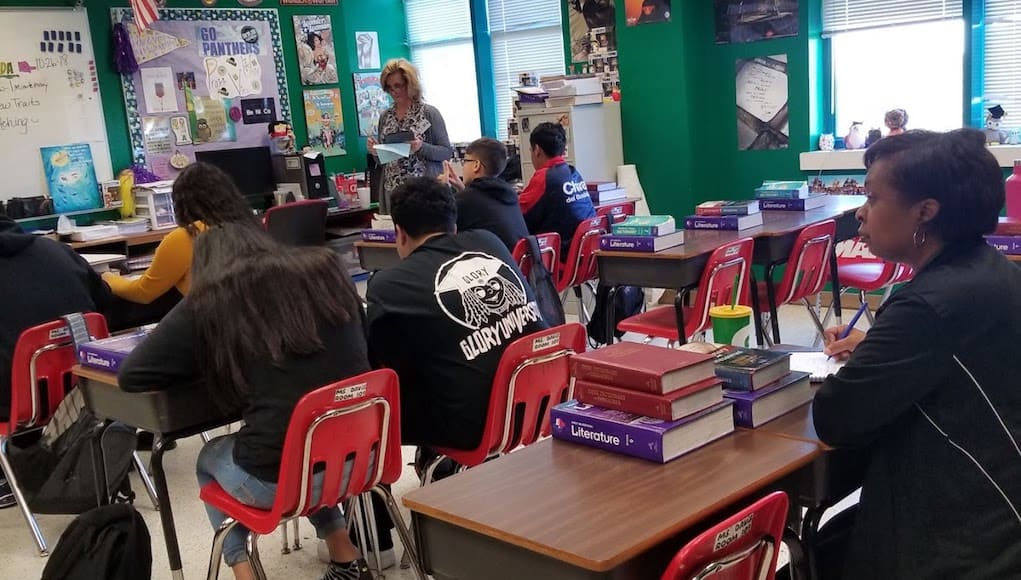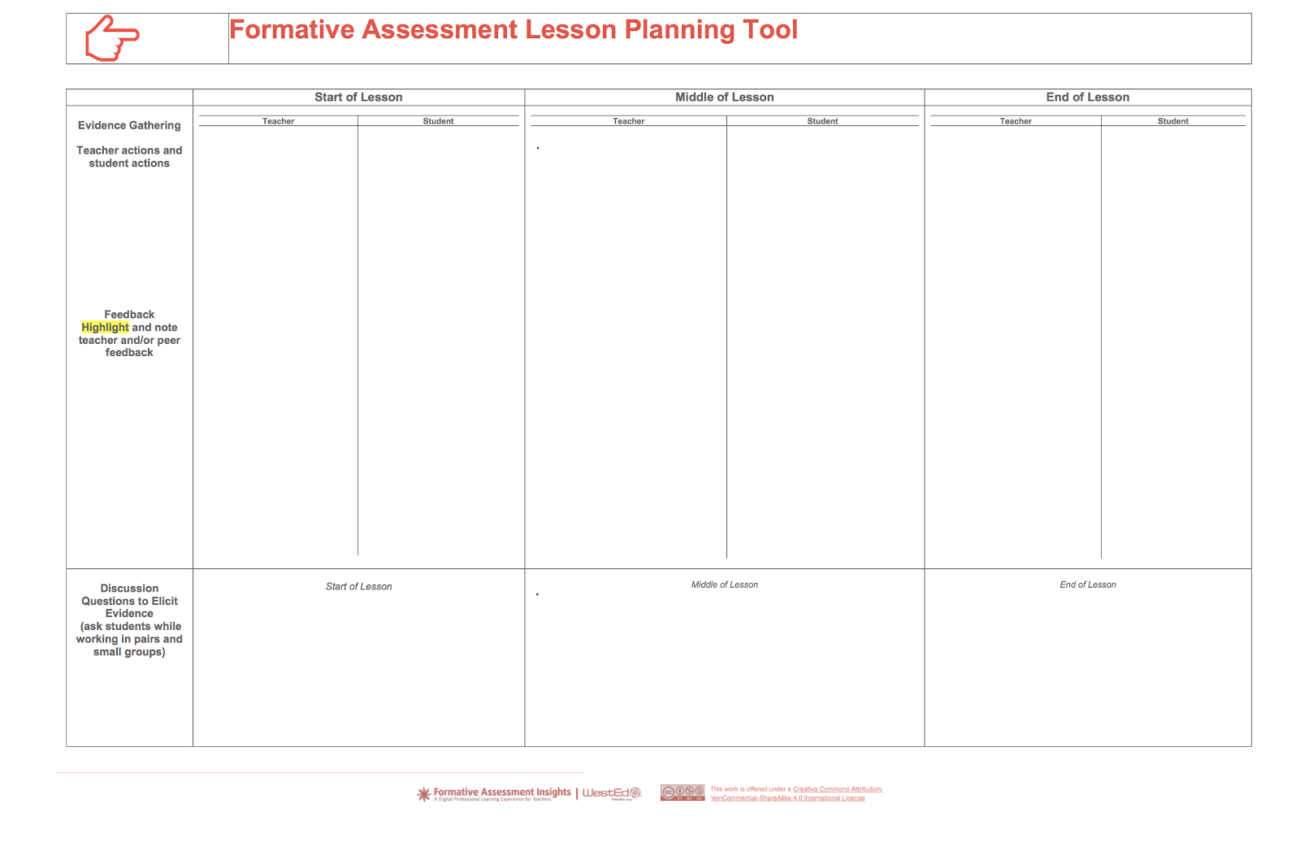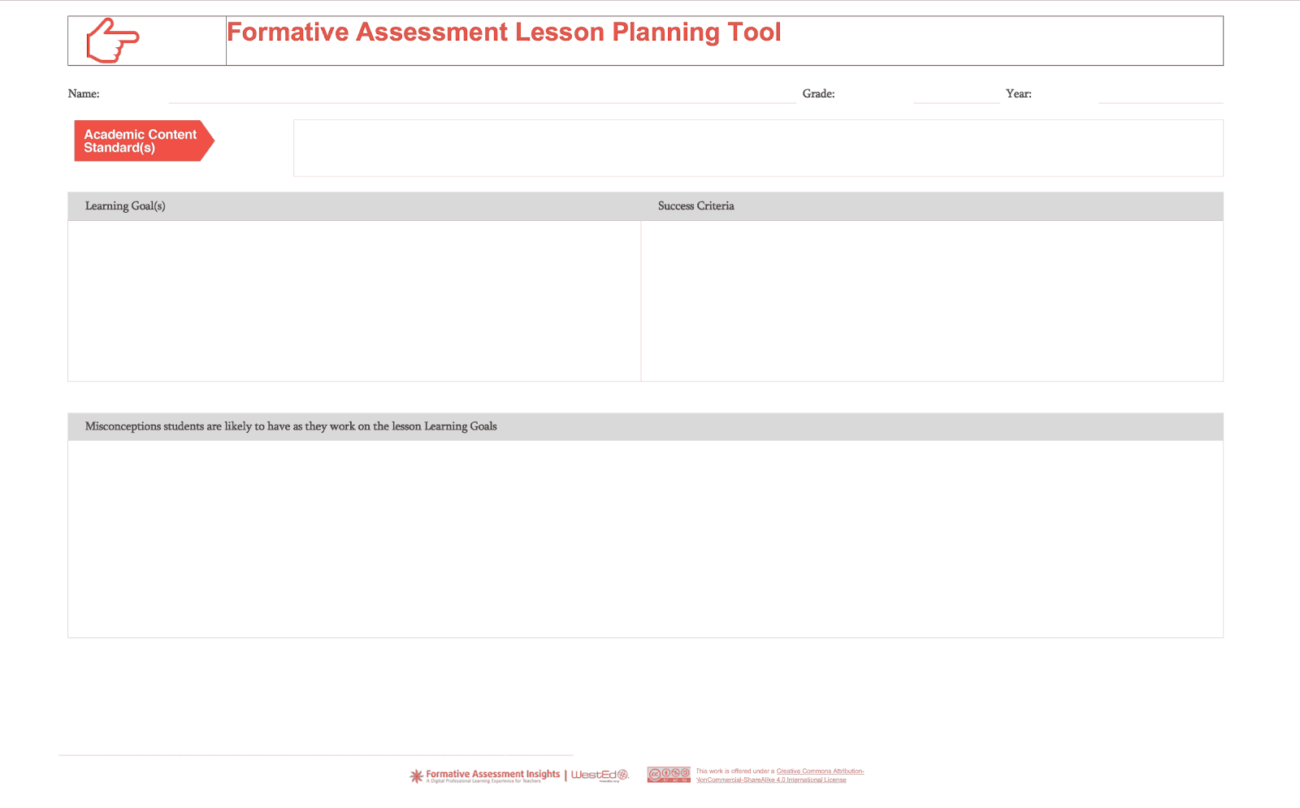PODs in Action: Teachers Engage in Productive Peer Feedback

By: Mary Ryerse, Tamara Hall, Michelle Berkeley
In Dallas, teachers love to collaborate and learn from each other. Building upon that concept, much like their counterparts in Tulsa, a group of Dallas ISD educators have participated in professional learning focusing on implementation of formative assessment lesson design using a structured approach to collaboration referred to as the POD model.
Most recently, this professional learning process highlighting teachers learning from other teachers was presented at the Learning Forward conference in Dallas earlier this month. We caught up with Tamara Hall of WestEd (school coach and co-author on this post) and gathered some quotes from the teachers about their experiences with the POD process as well as her reflections and tips.
Dallas ISD is part of a three-district collaborative project: How I Know: Designing Meaningful Formative Assessment Practice, an initiative of the Michael & Susan Dell Foundation. How I Know was created in an effort to improve and impact formative assessment practice for teachers and students.

What is the POD Professional Learning Model?
For those who don’t know a lot about POD, here’s a quick snapshot. POD stands for Plan, Observe, Debrief, and teachers who engage in the process do exactly that.

The plan, observe, debrief process is used to improve professional practice along several dimensions, with the ultimate goal of improving teaching and learning. During POD cycles, teachers engage in numerous collaborative processes, including but not limited to:
- collaborating with peers to develop lessons that integrate formative assessment practice,
- receiving feedback on their formative assessment lesson plans from coaches and peers,
- engaging in peer/coach observation of the lessons they collaboratively developed,
- engaging in individual or group reflection of their formative assessment lesson,
- reflecting with peers and leaders, and
- planning next steps based on feedback.
Teachers Talk About POD Cycles
Here’s what some Dallas teachers and leaders shared about their experience utilizing the POD cycle.
POD Cycles Encourage Collaborative Learning.
Evelyn Lawson shared her perspective as Formative Assessment Coordinator for Dallas ISD overseeing teachers putting the cycle into practice: “I believe our teachers really learned a lot from the POD process. They had an opportunity to receive intense FA professional development while collaboratively planning with their peers. So many of them expressed value in observing each other’s lesson and debriefing together. Each and every one of our teachers stated that they were 100% pleased with the process.”

POD Builds Confidence.
Gena Dubberley, kindergarten, English Second Language teacher at Anne Frank Elementary gave positive feedback about each component of the POD method contributing to her confidence in using formative assessment. She shared, “I’ve learned so much! This process has helped me feel more confident with using formative assessment in my planning and teaching. I also liked observing in the other classrooms and debriefing. We learned a lot from each other.”
POD Cycles Improve Preparation.
Kimberly Harmon, who teaches 3rd and 4th grade reading language arts and social studies at Ben Milam Elementary, reflected on lesson planning with others as valuable to teacher preparedness. She believes, “Working with other teachers to plan my lesson was a valuable experience for me. I feel so much better about the whole process now.”

POD Cycles Demystify FARROP Elements.
Esmeralda Hernandez, 3rd and 4th grade bilingual math and science teacher at Ben Milam Elementary credits implementing the POD cycle with improving her understanding of FARROP, a rubric outlining ten dimensions of formative assessment practice with guidelines and resources for use in observations and reflections. She stated, “Now that I have gone through the POD process, I am excited about looking at other dimensions of the FARROP. My students are learning so much more now that I am using FA practices in my classroom.”

You can learn more about these above teachers and others involved in the How I Know project by accessing their profiles through the How I Know website.
A Coach’s Reflection and Tips
Coaching is a valuable aspect of the program because it allows for a comprehensive perspective. Coach Tamara Hall claims that the power of a POD cycle is how it builds the capacity of all participants at multiple levels and how the cycles fit into a professional learning system. She reflects, “Every time I work with teachers through a POD cycle, I have found that all of the participants tell me that their experience has been one of the most powerful forms of professional learning they have ever had, regardless of their years of teaching experience.” As a leader, the POD cycles are not about improving teachers, rather they are about creating the conditions where teachers can improve themselves.
 Tips for a Successful POD Cycle
Tips for a Successful POD Cycle
Tamara shares the following points for POD cycle participants to have the most success with the process:
- Plan for the time and safe space where collaboration is possible
- Develop relationships and trust with colleagues
- Be open to learn, try new approaches, seek feedback and willing to move outside of your comfort zone
- Be deliberate with your thinking around the student experience and student role as a result of your lesson
- Know the standards for which you are planning and know your students – embed evidence of student learning throughout the lesson and notice what you are learning about your students from this evidence
- Know your focus on FARROP elements to reflect and intentionally plan for those elements to come to life within your classroom
- Be reflective on your practice and have fun learning
Incorporating new methods and tools like the POD cycle can have a significant and meaningful impact on the success of a formative assessment classroom. With POD, it is clear that collaboration through planning, observing and debriefing can lead to new ideas, refined practices and confident teachers.
For more, see:
- Professional Learning Through the Plan, Observe, Debrief (POD) Model
- The Power of Teacher-to-Teacher Observations: A Formative Assessment Field Trip
- Reflections on #HowIKnow: A Formative Assessment Project
Tamara Hall serves as a School Improvement Facilitator at WestEd’s Comprehensive School Assistance Program and a Dallas ISD Teacher Coach for the How I Know project.
This post is a part of a series focused on the “How I Know: Designing Meaningful Formative Assessment” initiative sponsored by the Michael & Susan Dell Foundation. See the How I Know website (www.formativeassessmentpractice.org) and join the conversation on Twitter using #HowIKnow or #FormativeAssessment
Stay in-the-know with innovations in learning by signing up for the weekly Smart Update. This post includes mentions of a Getting Smart partner. For a full list of partners, affiliate organizations and all other disclosures, please see our Partner page.








0 Comments
Leave a Comment
Your email address will not be published. All fields are required.